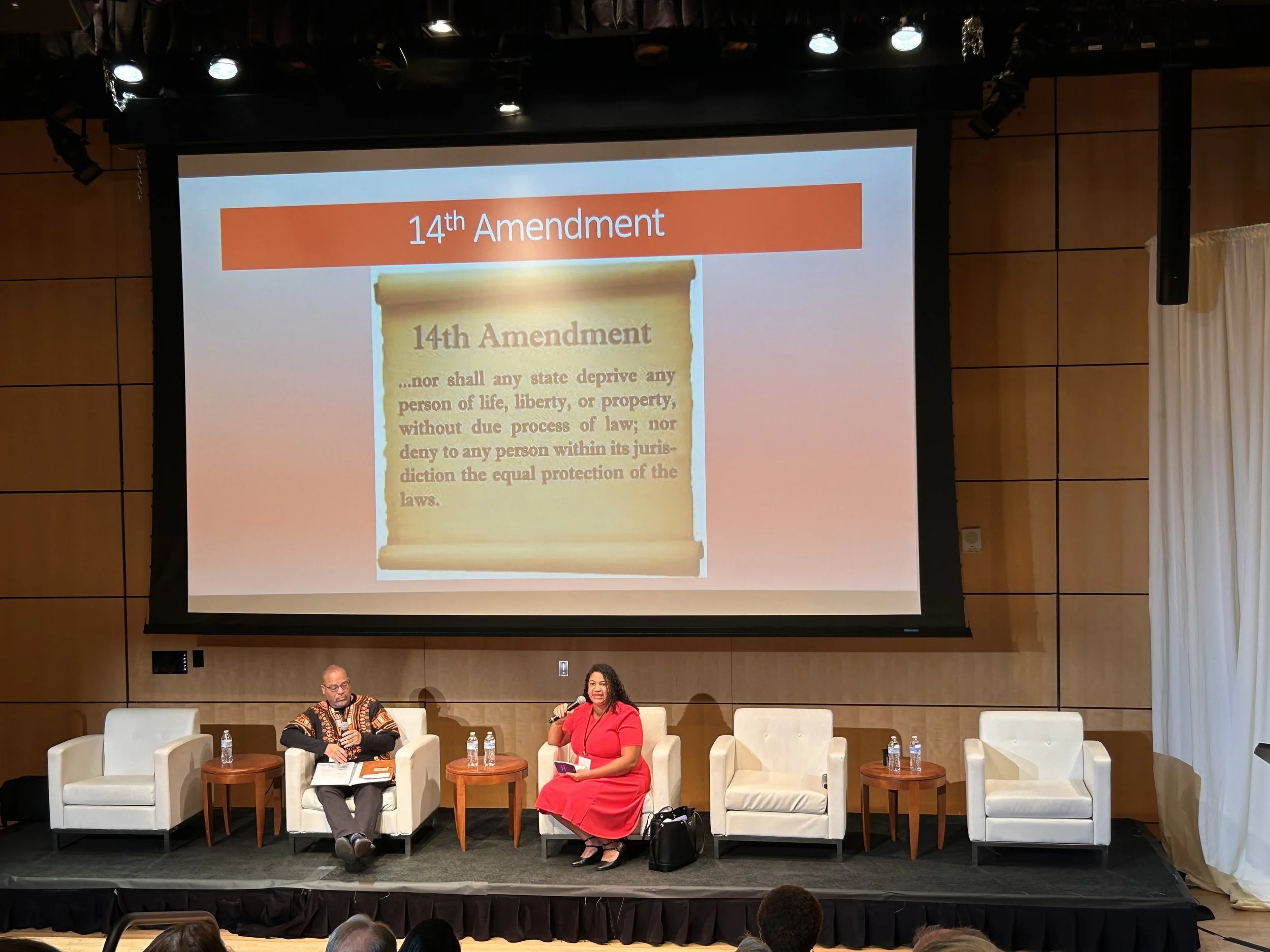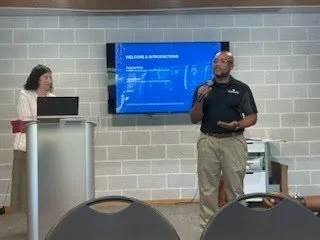Nikki Owens Is Disappointed In How Aisha Braveboy Handled The Case Against The Officer Who Shot William Green, her cousin, While Handcuffed
This article was first published in our newsletter on December 11. Click here.
Upper Marlboro — In the blistering cold, local political reformers (activists), William Green’s family members, and friends stood before journalists and community members holding lights, TV cameras, microphones, and smartphones. Yanet Amanuel, public policy director at Maryland ACLU, stood alongside the William Greens family members. She gave the reason why we were summoned to Upper Marlboro, the seat of political power, and injustice in Prince George’s County. In the 1800s Michael Green was pulled from the Upper Marlboro jail and lynched.
We were all there to bear witness to what they had witnessed over four years — grief, sadness, and anger due to the killing of William Green, and what they believed to be a botched trial.
In 2020, Prince George’s County Cpl. Michael Owen, a Prince George’s County Police officer, had arrested Green, who crashed into some vehicles. Green was handcuffed and searched. Officers put him in the front seat of a police car. Owen alleges that Green attacked him and tried to grab his gun while handcuffed. Owen said he defended himself by shooting Green, who was handcuffed, six times. For the death of William Green – County Executive Angela Alsobrooks, former Prince George’s County state’s attorney, acknowledged that Owen had abused his authority. The family was awarded $20 million. After four years, Owens was acquitted of all charges.
“ ….The Maryland Coalition of Justice and Police Accountability expresses profound heartbreak and deep disappointment in the justice system’s failure to hold Mr. Owen accountable for this tragic incident,” said Amanuel. “The acquittal of officer Owen represents a grave mis-justice in our law enforcement and judicial system.”
Nikki Owens, the cousin of William Green, also spoke. Owens rejected officer Owens’ narrative of that night.
“William ( aka‘Boo Boo’) Green was killed by Cpl. Michael Owens,” she explained. “It was not self-defense. It was not man-slaughter. It was not anything – but a cold,blooded murder. That is what that was.”
“That’s right,” members shouted from the background.
She continued: “William Green was handcuffed. William Green had been searched twice. William Green was lethargic throughout the entire incident. He was not a danger to anyone.”
The press conference was not only a space for the media to bear witness to family’s collective pain, but also a space to remember the other deaths due to encounters with law enforcement that have occurred in Prince George’s County, and Baltimore.
In 1993, Prince George’s County Police officers Jason Leavitt, and Wayne Cheney shot Archie Elliot III 14 times while handcuffed and seated in the front seat. Gary Hopkins, Jr. was shot and killed by Prince George’s County police under suspicious conditions. In 2000, Prince George’s County police officer Carlton Jones shot and killed Prince Jones, a friend of Ta’ Nehesi Coates, in Fairfax, Virginia. In 2013, after an encounter with two Baltimore police officers, Nicholas Chapman and Jorge Omar Bernardez Ruiz, Tyrone West was killed.
“ And there was no justice,” Amanuel said after slowly reading each name as her voice trailed off due to crying.
“And there was no justice,”was Amanuel’s analysis and critique of the county’s political structure. For the collective, Owen’s acquittal points to a political structure that is seemingly incapable of holding police officers accountable. Though the Prince George’s County Police Department has a history of violence in the county, Cpl. Owen was the first officer charged with murder.
Owen, even before his encounter with Green, had used force on a number of occasions. The department’s early warning system had flagged his behavior,” according to the Washington Post. However, his superiors weren’t immediately notified, but when they were informed, according to The Post, they failed to act.
Additionally, Owens said Aisha Braveboy, Prince George’s County State's Attorney, mishandled the case.
“ I am completely pissed off,” said Owens. “Honestly, walking into this, I knew I had to accept the verdict. I accept the verdict for what it is. But what I don’t accept is Aisha Braveboy standing in front of the press, after the verdict, blaming my family, blaming William Green, blaming the police, and blaming the judge for her office’s…incompetence.”
“This verdict had nothing to do with William Green’s actions,” she explained. “It has nothing to do with our family not accepting a shitty-ass plea-deal that you offered [officer Owen]. It had nothing to do with the judge rejecting the plea-deal. And it had nothing to do with the police investigation – because the police handed you this case. Michael Owen handed you that case.”
“They had four years to work on this case,” said Owens.
Owens is responding to a press conference Braveboy held post-verdict. Braveboy said her team believed officer Owen committed a crime, and said his narrative was implausible. “William Green should be alive today,” she said.
However, there seemed to be a problem with her team gathering adequate evidence, and a lack of preparedness for trial. Officer Owen was offered a plea deal.
The Green family was disappointed when they were notified that Braveboy’s office had offered Owen a plea deal. More specifically, they were upset that a plea was offered after hearing Cpl. Owen’s version of the events.
“Green’s family said they felt hurt and frustrated that the decision was made without their consultation, and baffled that Braveboy — who campaigned on police accountability and whose office has tried nearly a dozen police misconduct cases during her tenure — would forgo a trial in one of the most high-profile police shooting cases in the county’s history,” according to The Washington Post.
There was a lack of DNA evidence, and there was no video. Partly, because officer Owen did not have a body camera. Some officers were issued body-worn cameras for its phase 1 program. It’s not clear why officer Owen did not have one. Braveboy said all the evidence they had was turned over to the defense. But, alluded to the fact that a lack of evidence presented challenges for them. During the press conference, a reporter asked Braveboy about the plea deal. Braveboy said when both sides work out an agreement, it should be respected by the courts.
Prince George’s County Circuit Court Judge Michael Pearson rejected that plea deal, after Owen had accepted it. According to reports, the prosecutor’s office was late turning over discovery materials (evidence) to the defense. This included details of the reenactment of the crime scene and written evidence from a use-of-force expert.
“I will be reaching out to the Department of Justice, with everything in my soul, to make sure they prosecute [Owen],” said Nikki Owens. “I will be filing complaints with everyone under the damn sun about her office and their actions…I will make sure they will investigate her office.”
Read Our Other Coverage






